Celebrating Okra Fest 2023: A Conversation with Cam Terry
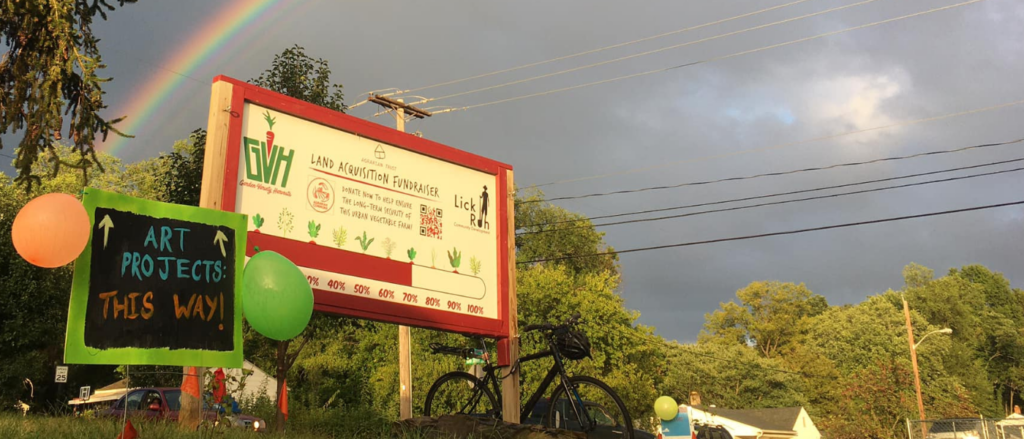
We recently had an opportunity to connect with Cam Terry, a farmer in Roanoke, Virginia who is currently raising funds with Agrarian Trust and Southwest Virginia Agrarian Commons to acquire a parcel of land in central Roanoke. We spoke about Okra Fest, a yearly arts festival that Cam hosts on his farm celebrating okra, community, […]
Meet Fran Miller, Agrarian Trust’s Newest Board Member
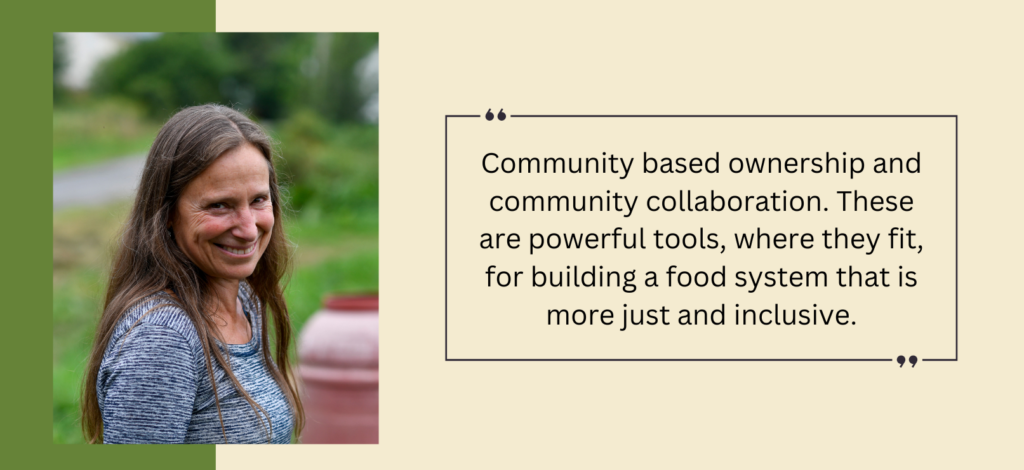
Fran Miller loves to grow garlic. She plants it every year, pressing the cloves into the earth at the end of fall, gathering the scapes in early summer, and curing the bulbs through the early fall.
Agrarian Trust Selected as Provisional Recipient of USDA Increasing Land Access Grant
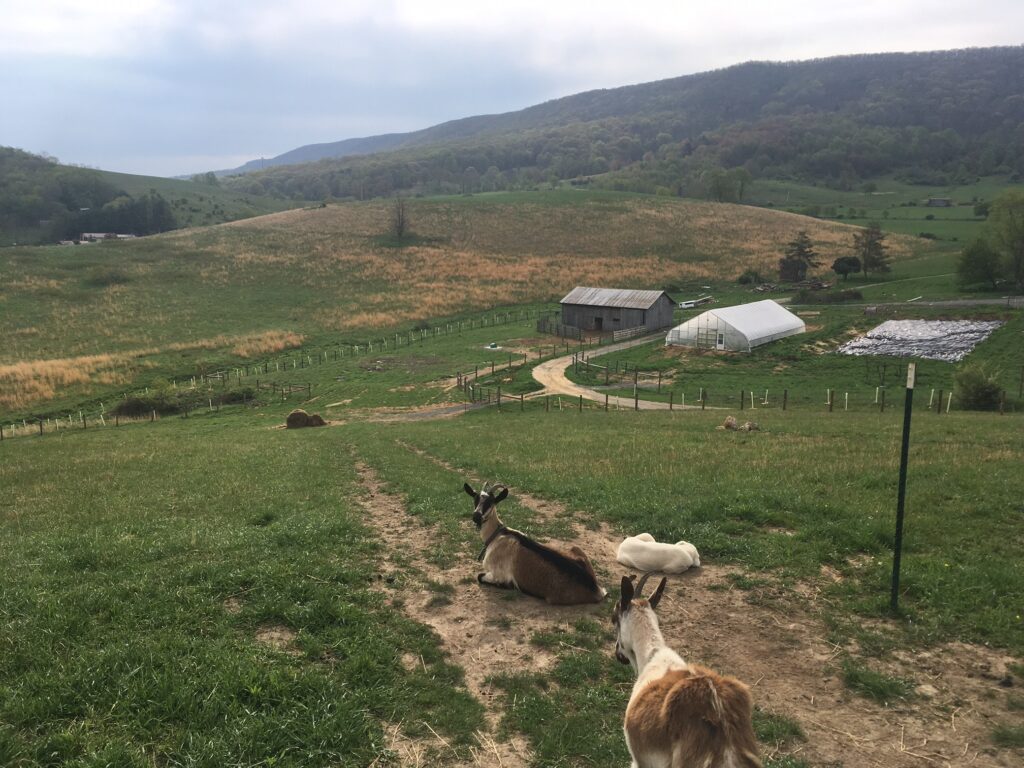
The funding allocated to Agrarian Trust and its partners will go towards providing technical assistance and securing land for farmers who are Black, Indigenous, People of Color (BIPOC) in Texas, Nebraska, New York, and Tennessee.
Give the Gift of the Commons
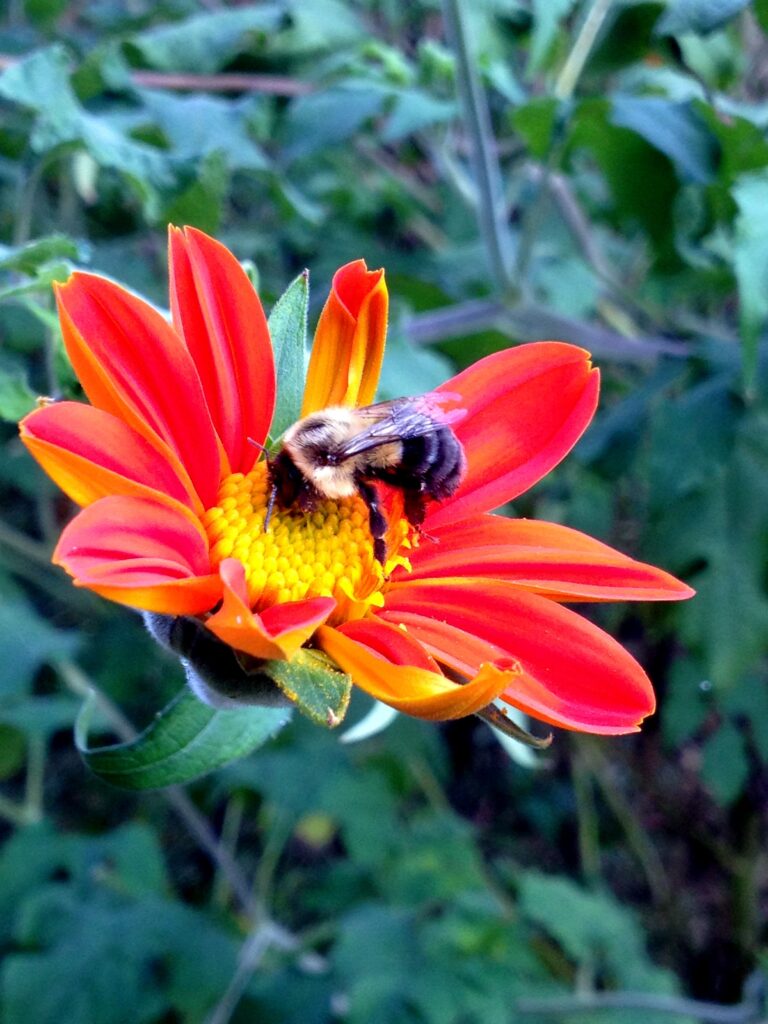
As 2022 draws to a close, we want to take a moment from the bustle of the season to reflect on some of these successes, and to share the work that still needs to be done.
We ask that you consider the variety of giving options Agrarian Trust provides, including our Alternate Gift Catalog, the Caring for the Commons Fund, and the ongoing fundraisers in Maine, Southwest Virginia, and Central Virginia. With your help, we can chart a new path for land ownership in the United States.
Global Spotlight: Community Land Scotland
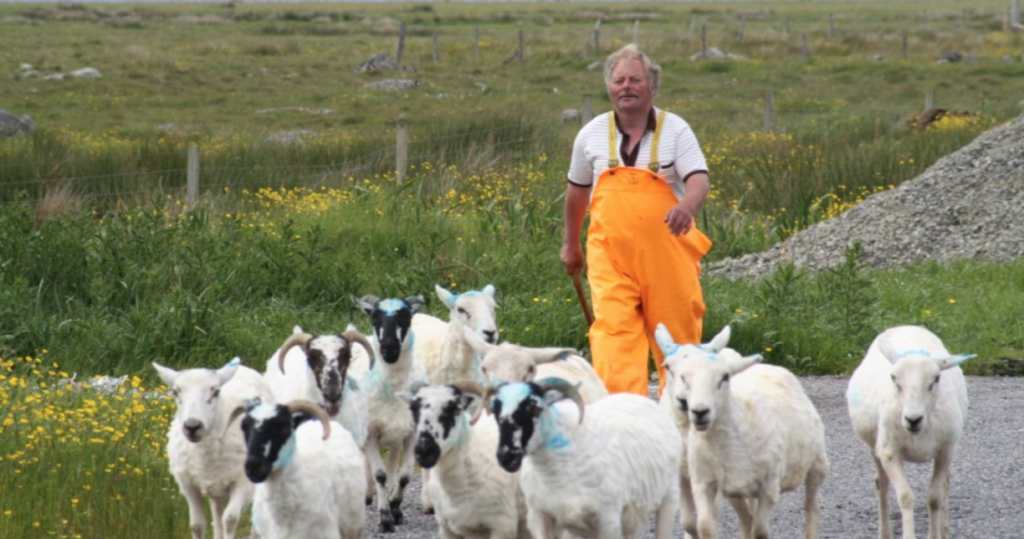
The Agrarian Trust is just one of many organizations across the world dedicated to the advancement of community control of the land. In Scotland, state-level land reform and grassroots organizing have led to the widespread practice of community land ownership. In 2010, Community Land Scotland (CLS) was founded to act as a shared voice for community landowners in Scotland and to provide support for communities as they navigate the complex world of purchasing and managing land as a community body. Today, its members “manage 560,000 acres of land, home to some 25,000 people.” As models like the Agrarian Commons gain traction in the United States, it is worth studying the examples of our global partners. CLS deploys a compelling mix of policy work, training, and networking opportunities to support community land ownership in Scotland.
Key Findings From National Young Farmers Coalition’s 2022 Farmer Survey
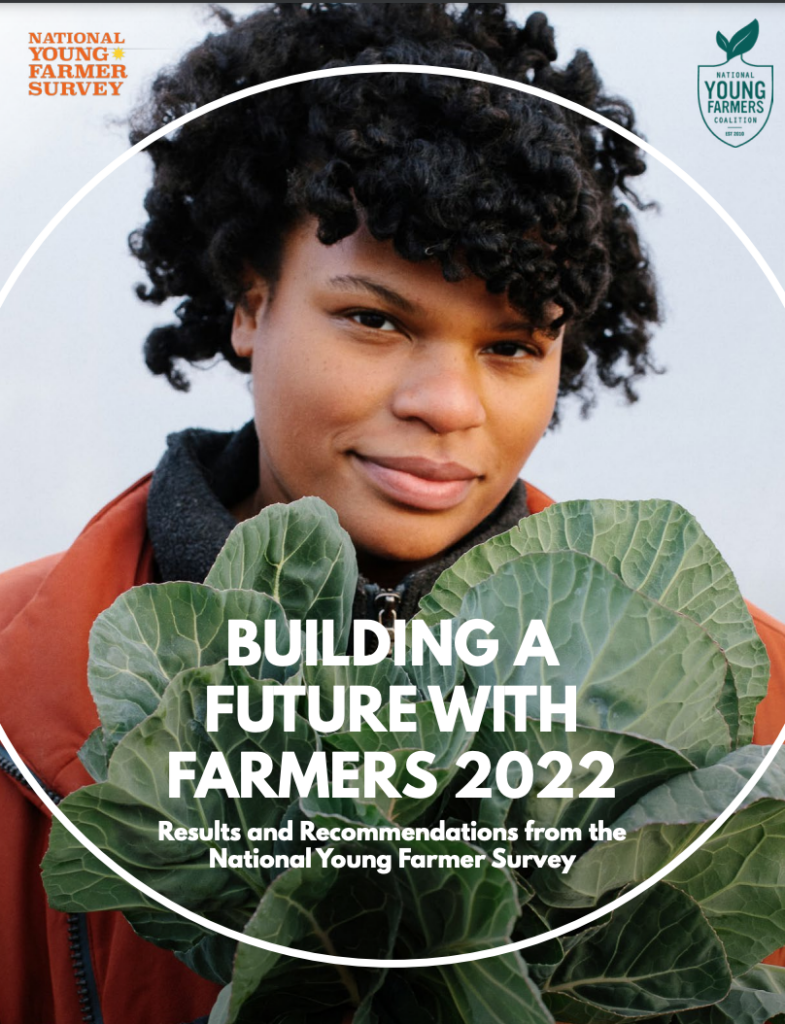
According to the survey, 59 percent of farmers surveyed reported that finding affordable land was “very or extremely challenging.” An even higher percentage of BIPOC farmers—68 percent of Indigenous respondents and 66 percent of Black respondents—gave the same response.
La Via Campesina
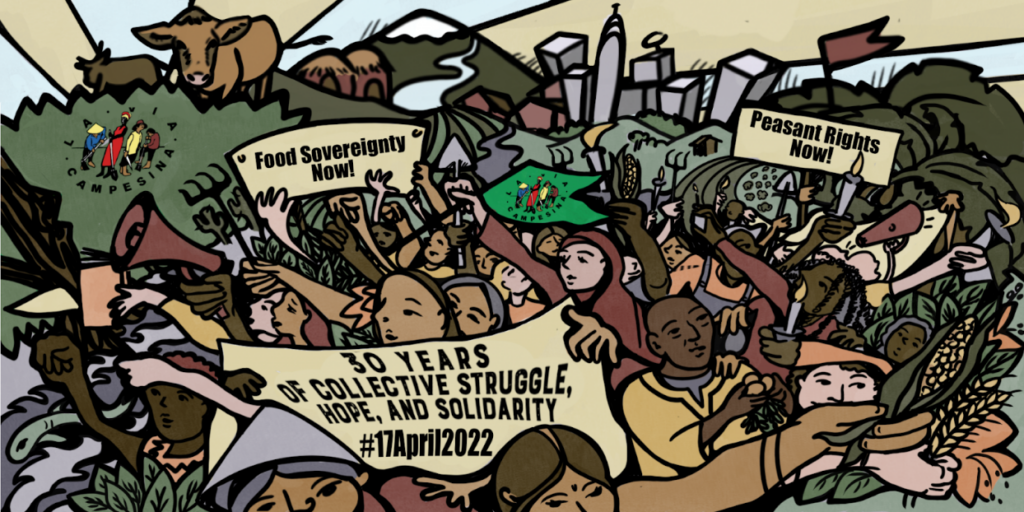
La Via Campesina coined the term food sovereignty in 1996, against the background of an increasingly globalized food system, which heavily favored large agribusinesses over small-scale farmers. The World Trade Organization (WTO) pressured countries to dismantle their local agricultural system, to lower prices, and become competitive on the global market. In order to drive labor costs down, farming became increasingly centralized, driving peasants and Indigenous people off their land at unprecedented rates. Aggressive copyright law and genetic engineering by large agribusinesses robbed peasants of their seeds, rendering them reliant on a volatile global market of pesticides and genetically modified organisms (GMOs). Cheap produce flooded local economies, destroying the livelihoods of farmers who were unable or unwilling to compete.
What can we learn from Deshee Farm? A Visual History
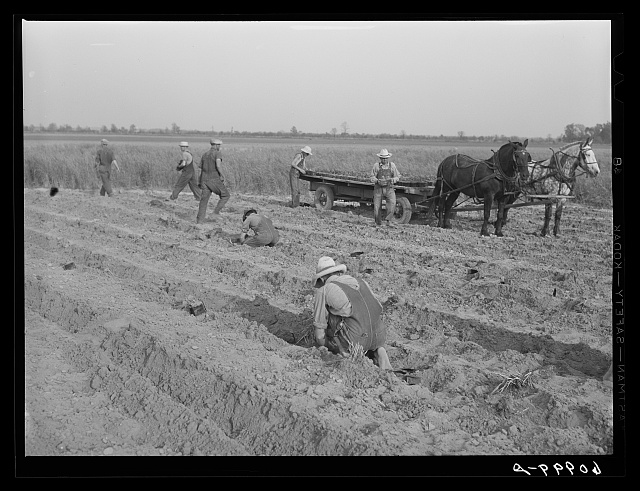
While farms like Deshee failed to take hold in the United States and had significant limitations, its story serves as a reminder that the privatized corporate farming that dominates U.S. agriculture was anything but inevitable. Grassroots organizing by tenant farmers played a key role in securing innovative, state-funded programming whose scale and vision matched the needs of the moment. Had there been more resources to fund similar efforts and more time and autonomy for the members of RA farms to develop the necessary institutions and cultural practices to effectively govern their shared resources, we might have been living in a different, more cooperatively focused world.
Juneteenth: A Celebration of Black Resistance

Using land as a pathway for growth and upward mobility has always been an American tradition, but was only afforded to Black people after Juneteenth. New generations are now benefiting from the long legacy and history of the Black farmer. Juneteenth is an excellent chance for our country to celebrate Black resistance, resilience, and land practices.
Agrarian Commons: A New Model for Community-Owned Farmland
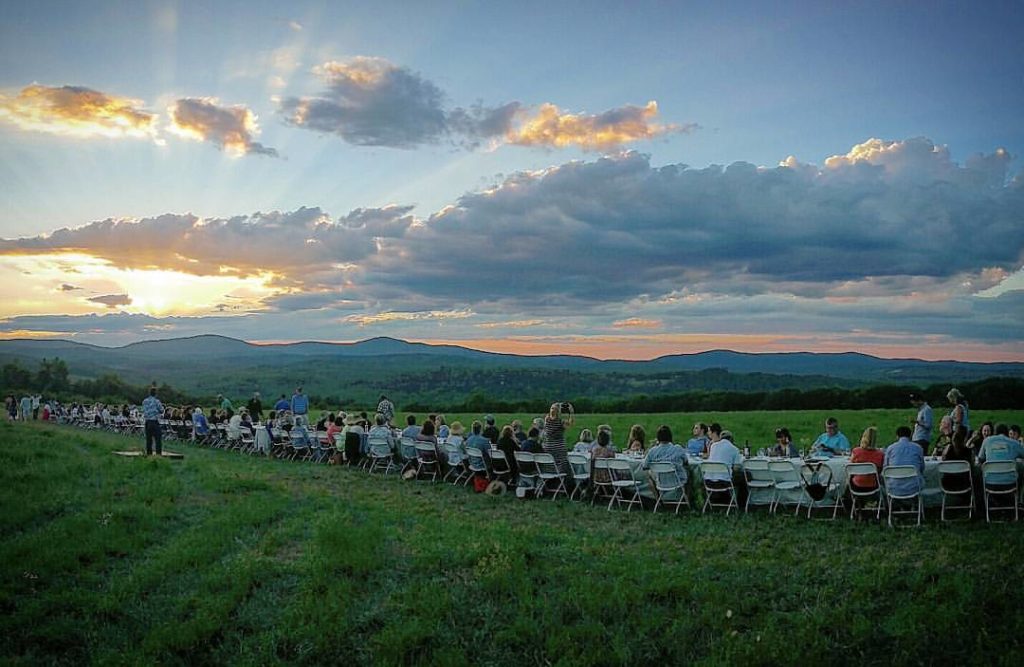
On May 4th, 2020, Agrarian Trust announced the launch of a transformative new model for community-based farm and ranch ownership and tenure, the Agrarian Commons. After several years of development and collaborative input, the Agrarian Commons launches in 10 states across the country. Co-founded with 12 farms representing 2,400 acres of diversified agriculture serving local foodsheds […]